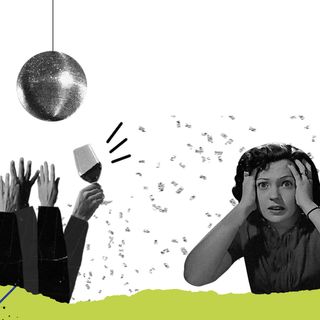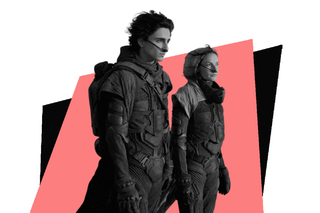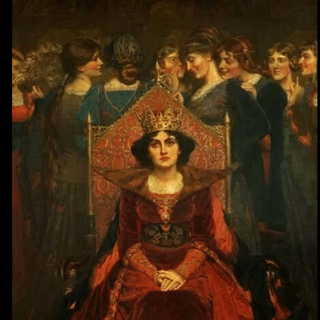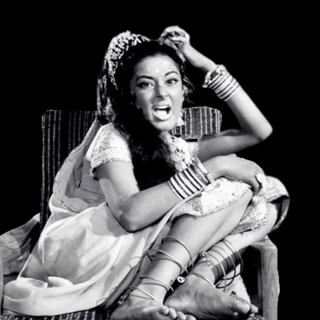
The Gender Politics of ‘Dune’ Keep It From Being Truly Ahead of Its Time
The film adaptation gets imperialism and ecology right to the tee, but its women almost solely exist for the hero’s self-actualization.

Dennis Villeneuve’s screen adaptation of the 1965 sci-fi epic Dune is every bit true to the scale and magnitude of its source material. The film is gigantic and magnificent: the soaring soundtracks and sweeping, desolate visuals of a colonized world are captivating, to say the least. But while the narrative claims to be a subversion of the “white savior” trope, its exploration of the gender dynamics in the Dune universe falls flat in comparison.
The story contains all the elements of epics: a noble family wronged by ignoble enemies, a secret prophesy, an oppressive empire, greed for wealth and power, and what it means to value principles over politics. At the center of it all is Paul Atreides (played by Timothée Chalamet), whose family the Emperor charges with the stewardship of Arrakis, or Dune — a planet abundant with “spice,” the most valuable resource in the universe. House Atreides is just, as opposed to their unscrupulous predecessors on Arrakis, House Harkonnen.
Unbeknownst to Paul, who grapples with the weight of his father’s legacy, are bigger, much more ancient forces at play, eventually converging into him. The Bene Gesserit, an ancient body of women acting as a shadow government, engineers colossal political outcomes through subtle powers of maneuvering, and Paul is but one part of this.
But the film, rather than showing us the prowess and influence of this group of powerful women in Dune’s political universe, chooses to attribute their relevance to the plot solely through Lady Jessica, Paul’s mother (played by Rebecca Ferguson), whose motivations and interests concern her son alone.
Despite being made five and a half decades after the source novel, this particular aspect falls short of the book, in which Lady Jessica has a much richer inner life and is motivated by things beyond her role as a mother to an important son. She is Paul’s anchor but also, so much more: she trains him, grounds him, studies him, and is wary of him all in equal measure.
The film, however, pares her character down to one who is only concerned with her son’s safety. There is a significant moment in the film which deviates from the book. It is when, at one crucial point, Lady Jessica blandly and uncharacteristically negotiates for her son’s safety, rather than thinking about the bigger picture as she always does.
Related on The Swaddle:
Why a ‘Female’ James Bond Could Be a Constructive Part of Gender‑Bender Cinema
There is also Chani — a Fremen, or a native of Arrakis — whose role the film (played by Zendaya) restricts to merely tossing coy smiles and glances at Paul in his dreams. Her character introduces the central struggle in Arrakis — imperialists destroying her home planet and people — but does little else beyond this.
Once again, despite the ample generational differences between the film and the novel, the latter seems far ahead of its time compared to its screen adaptation. Where Chani could have represented Fremen women and their deep relationship with the planet’s ecology, she is merely someone who drives Paul’s journey forward.
And this is the ultimate shortcoming of the adaptation: its treatment of imperialism, ecology, gender, and politics as discrete, parallel issues. Villeneuve recently fielded criticisms of Dune being a white savior narrative, by saying that his reading of the novel and, consequently, his film, is a critique of the same. But while readers understand that the eventual outcome of the plot is a subversion of saviors and messiah figures, the film presumes that viewers will come to this conclusion with very little to go by.
Specifically, it does not ask questions about the role that the powerful Bene Gesserit women play in politics, nor does it explore how the Fremen live, rather than merely survive, the inhospitable conditions of Dune. It does not explore why it is Paul who has to be this purported savior, or even ask: who gets to be a savior, and why do the Fremen supposedly need one? Is Paul also a male savior, despite it being the women in his life teaching him essential skills? The movie also does not explore Chani’s origins: a character who has more stakes and actual emotional investment in her planet.
While it did make the gender of a particular character, Liet Kynes (played by the magnificent Sharon Duncan-Brewster) more ambiguous, the planetary ecologist had a merely expositional role in the film. The film wasted what could have been a nuanced portrayal of the relationship between ecological knowledge and gender — and how ecological destruction is inherently tied to the devaluation of femininity and the mystical “other.”
The film is not without its merits, and several reviews have detailed these since its worldwide release. But in matters of gender and nuance, it is the original story that is far beyond its own — and its adaptation’s — time. Instead of using the advantage of time to expand on its source material’s vision, Dune’s film adaptation falls back on tired cliches of motherhood, mysterious forbidden love, and other aspects of femininity that ultimately serve nothing more than its protagonist’s self-actualization.
Rohitha Naraharisetty is a Senior Associate Editor at The Swaddle. She writes about the intersection of gender, caste, social movements, and pop culture. She can be found on Instagram at @rohitha_97 or on Twitter at @romimacaronii.
Related


It’s Okay: To Not Enjoy Celebrations
